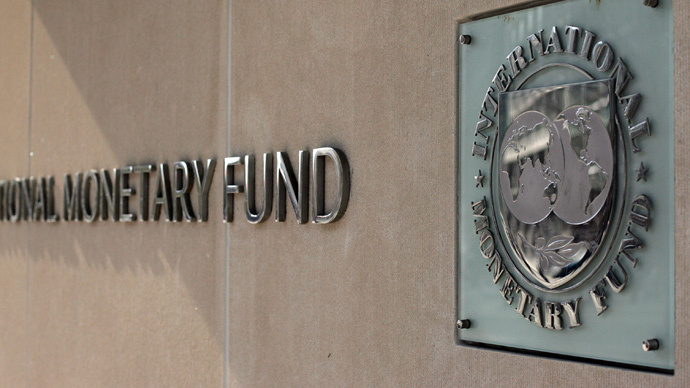'Grexit' will not slow down global economic recovery – IMF

Despite the growing possibility of a 'Grexit,' the International Monetary Fund has dismissed fears the Greek crisis will slow down global economic recovery. The fund also slightly upgraded its outlook for the eurozone.
In an update to its bi-annual World Economic Outlook, the IMF left its 2016 global growth forecast unchanged at 3.8 percent, but downgraded its 2015 forecast to 3.3 percent from 3.5 percent.
READ MORE: Greece asks for new 3yr loan, promises reform plan on July 9
In addition, the 2016 outlook for the eurozone was raised from 1.6 percent to 1.7 percent.
Despite the possibility of Greece leaving the eurozone as early as next week, the IMF was surprisingly optimistic, stating that “developments in Greece have, so far, not resulted in significant contagion.”
Referring to the eurozone, the IMF noted “a generally robust recovery in domestic demand and inflation beginning to increase.”
It estimated that the crisis would take “a heavier toll” than previously expected on economic activity in Greece, but upgraded its forecasts for several other eurozone member states.
In particular, Spain and Italy are expected to expand faster in 2015 and 2016 than previously believed.
The fund says risks remain for global economic recovery, including revived financial stress in the eurozone.
Meanwhile, the prognosis for Russia's GDP in 2015 is improved to a 3.45 percent decline, though the outlook for 2016 was slashed.
The IMF also slashed 2015 growth forecasts for the US economy, from 3.1 percent to 2.5 percent. In addition, the fund downgraded its outlook for Japan and Britain, lowering it by 0.2 and 0.3 percentage points to 0.8 and 2.4 percent respectively.
The fund explained these updates as the result of one-off factors in the first quarter, such as harsh winter weather in the United States.
Meanwhile, the IMF was less optimistic about the future of emerging markets, expecting growth to decelerate from last year's 4.6 percent to 4.2 percent in 2015. This is slightly slower than what was expected last April.
The outlooks for the BRICS countries of China and India were left unchanged, while Brazil's forecast was cut by 0.6 percentage points in 2015 and 0.5 percentage points in 2016.
In conclusion, the fund called on central banks in advanced economies to keep monetary policy loose and support economic activity. It stated that emerging markets should expand fiscal policy when possible, while passing structural reforms to raise productivity.












